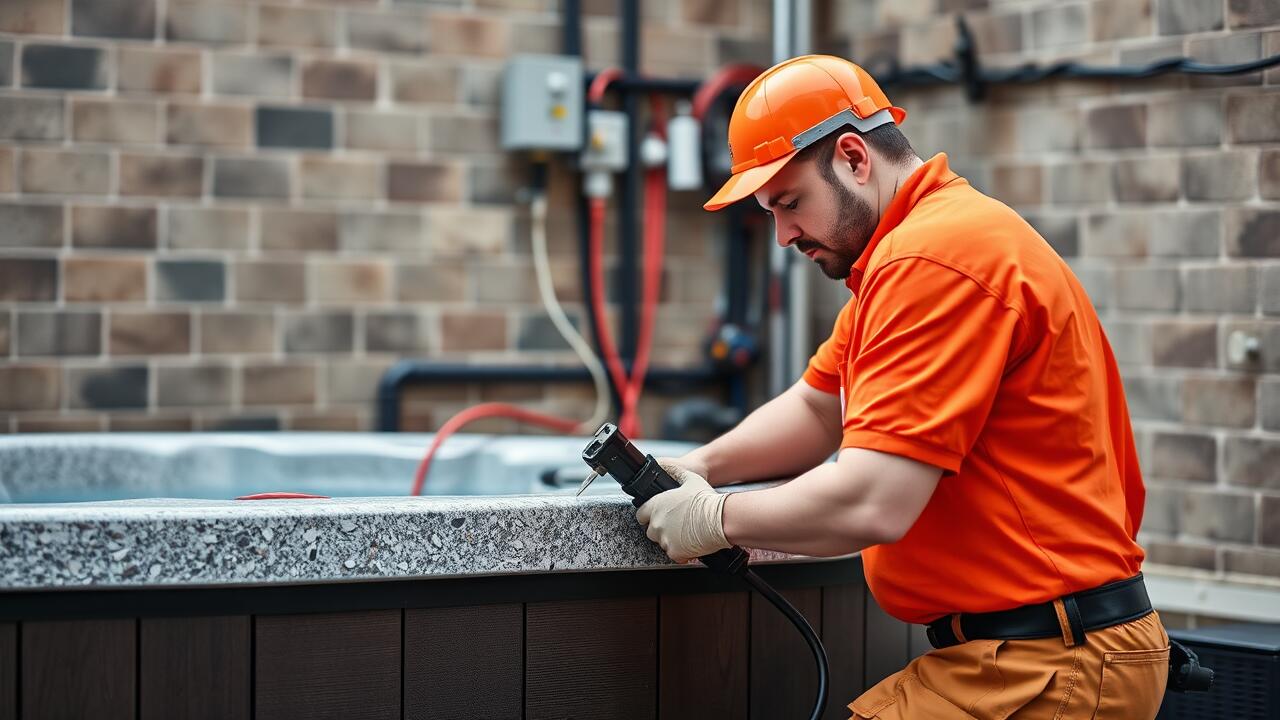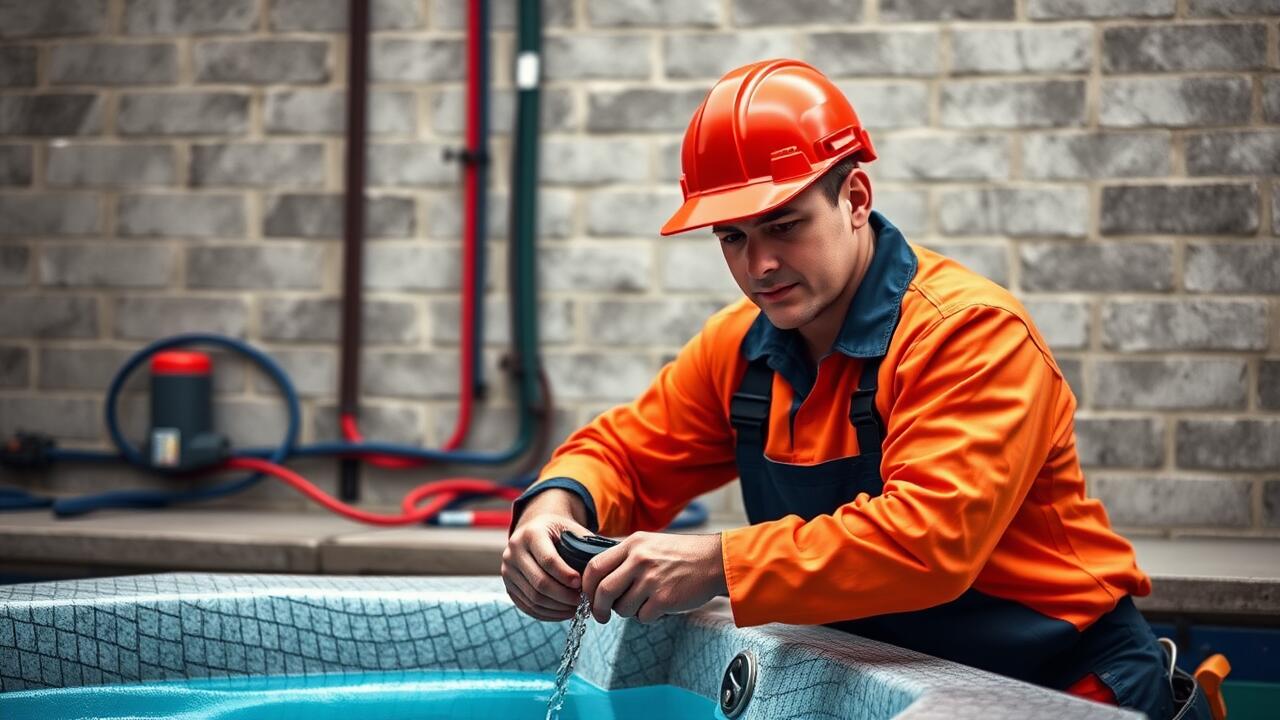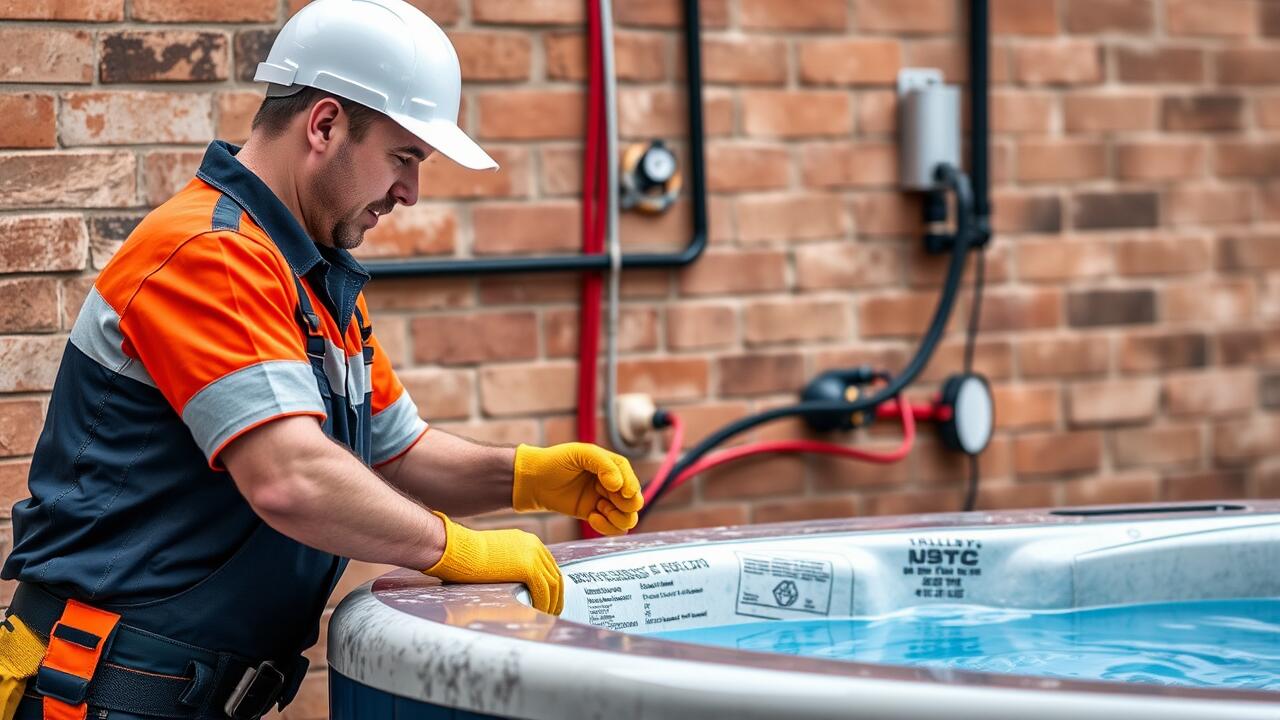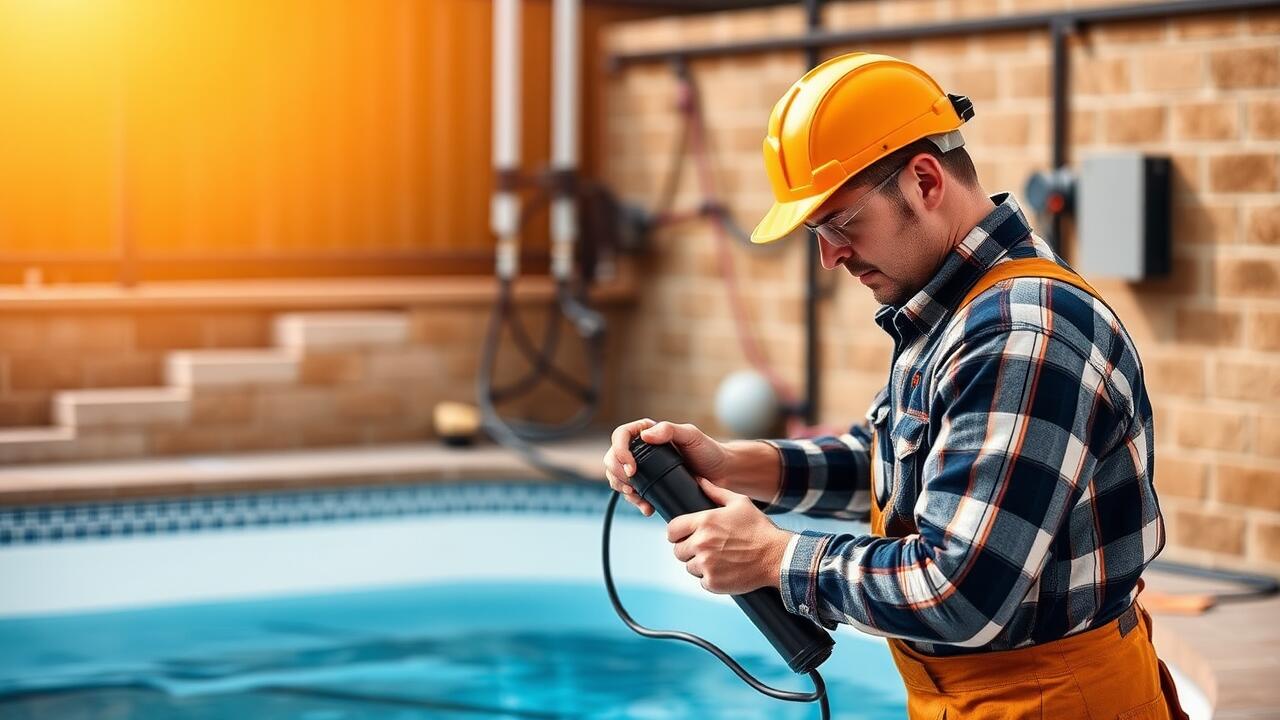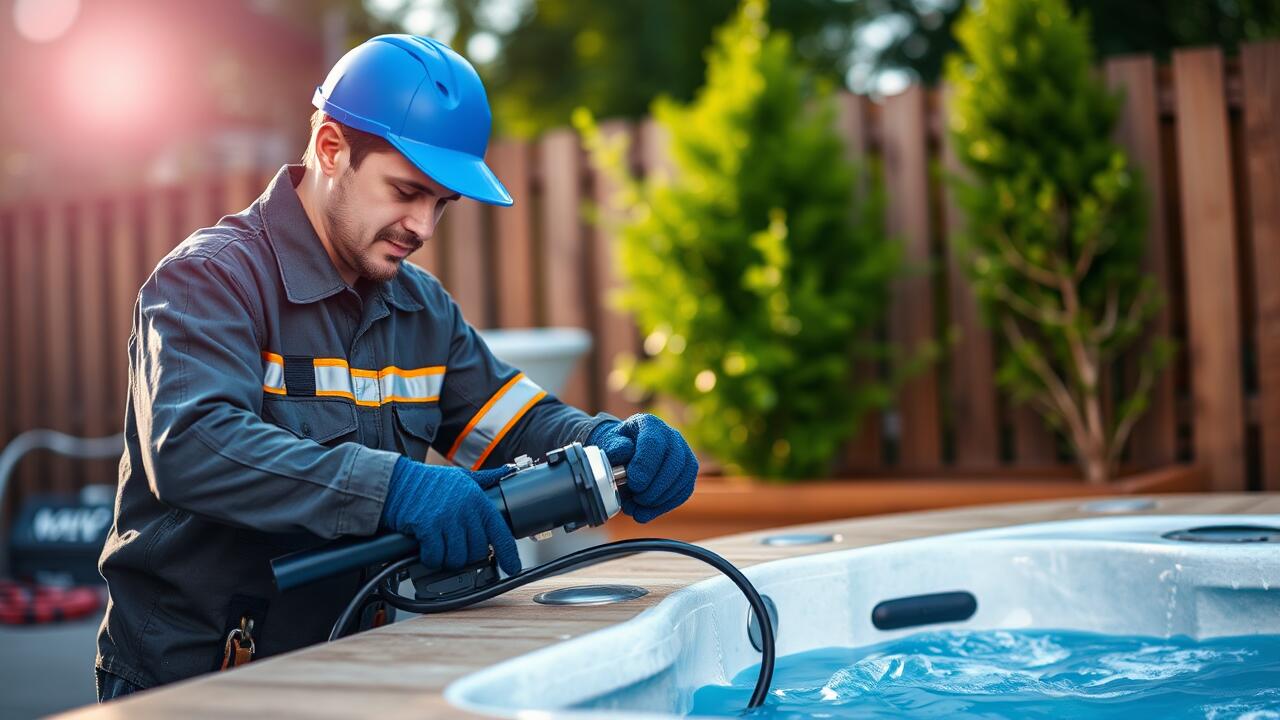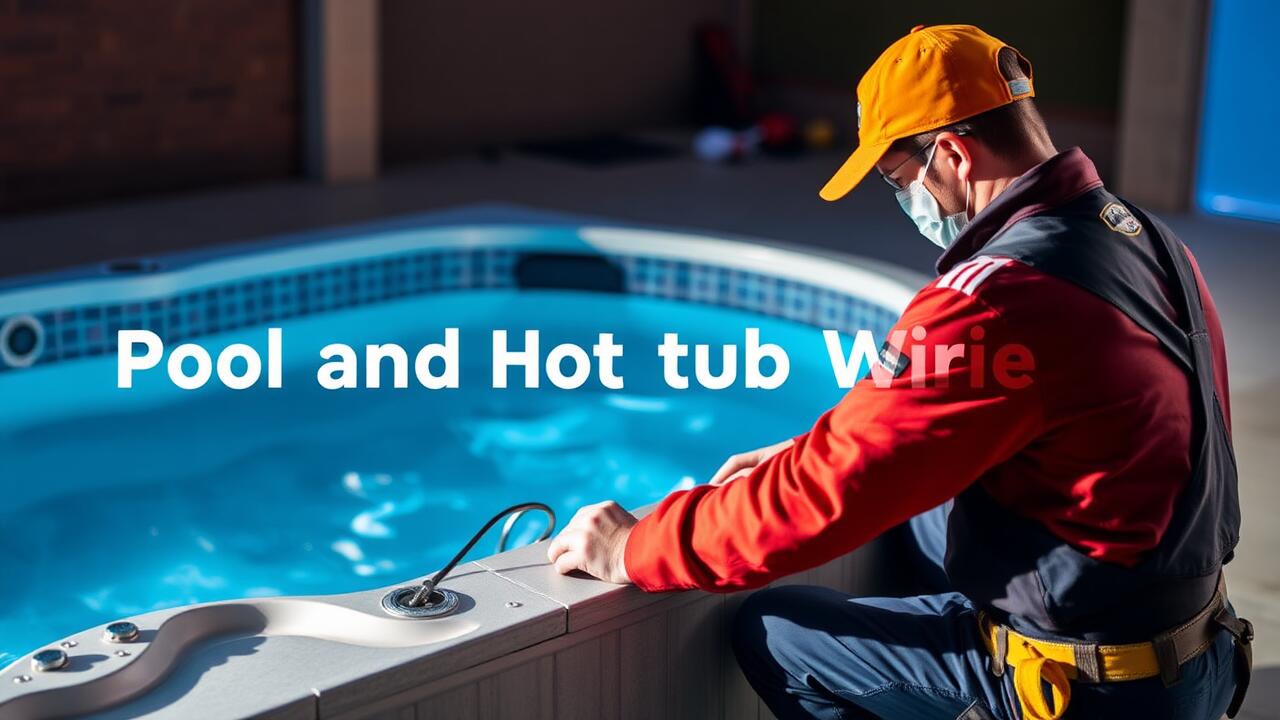
GFCI (Ground Fault Circuit Interrupter) Requirements
The installation of Ground Fault Circuit Interrupters (GFCIs) is a critical requirement for electrical systems near pools and hot tubs. GFCIs are designed to protect against electrical shocks by detecting imbalances in electrical current. In areas where water and electricity can coexist, such as around pools, GFCIs serve as the first line of defense to ensure safety. Specific regulations mandate that all outlets and circuits serving outdoor receptacles, pool lighting, and pool equipment must be protected by GFCIs.
Compliance with GFCI requirements is essential for residential and commercial properties, particularly for those in regions like Greenspoint, Houston. Electricians must ensure that GFCIs are correctly installed and regularly tested to remain functional. Homeowners should also be informed about the importance of maintaining these devices for ongoing protection. Eliminating potential hazards in wet locations can prevent serious accidents and ensure a safe environment for swimming activities.
Essential Protection Mechanisms
Ensuring the safety of electrical installations around pools requires careful attention to protective mechanisms. Ground Fault Circuit Interrupters (GFCIs) play a vital role in safeguarding against electrical shock. These devices monitor the electrical current and automatically shut off power if they detect any discrepancies, significantly reducing the risk of electric shock in wet environments. In areas where water and electricity intersect, having GFCIs properly installed is not only recommended but often mandated by the National Electrical Code.
Other crucial safety measures involve the strategic placement of pool equipment and electrical components. Using weather-resistant covers and enclosures protects vulnerable elements from moisture. Additionally, ensuring that electrical connections for pumps and heaters are located safely away from pool edges minimizes the risk of accidental contact with water. Professionals specializing in Pool and Hot Tub Wiring in West University Place, Houston, are well-versed in these safety standards, providing essential guidance to homeowners looking to enhance their poolside safety.
Specific Clearances for Lighting Fixtures
When installing lighting fixtures near pools, specific clearances are crucial to ensure safety and compliance with electrical codes. Fixtures should be placed a minimum of 5 feet away from the water's edge to prevent accidental contact and reduce the risk of electrical shock. This distance is essential for all types of outdoor lighting, including wall-mounted lamps and in-ground lights, and must adhere to local regulations regarding placement.
In residential areas, Pool and Hot Tub Wiring in Greenspoint, Houston, often requires additional considerations. Proper placement of lighting fixtures should take into account any potential obstructions, such as pool ladders or umbrellas, that may come into play when utilizing the pool area. Adhering to these guidelines not only promotes the safety of pool users but also aids in creating a well-lit environment that enhances visibility during nighttime activities.
Proper Placement to Mitigate Hazards
Proper placement of lighting fixtures around pools is crucial for minimizing hazards. Fixtures should be installed at least five feet away from the water's edge to reduce the risk of electrical shock. Additionally, all lighting should be specifically rated for wet locations to ensure durability against moisture and splashes. Local codes often dictate the distance and type of fixtures that can be used. Adhering to these regulations enhances safety for users and decreases the likelihood of accidents.
Maintaining appropriate clearances for pool and hot tub wiring is essential in areas prone to electrical issues. For example, in Greater Heights, Houston, ensuring that all electrical components related to pool and hot tub installations are at the right height can prevent accidental contact with water. Fixtures and connections must be evaluated not only for their safety ratings but also for their positioning relative to both the pool and any nearby structures. This careful planning is key to creating a safe environment around water settings.
Pool Equipment and Electrical Connections
When installing electrical connections for pool equipment, safety is a paramount concern. All wiring must comply with local codes and regulations, particularly in residential settings. Ground fault circuit interrupters (GFCIs) are essential for safeguarding against electrical shock. They should be integrated into the design, especially for circuits powering pumps, heaters, and lights. Regular inspections ensure that all components function properly and meet safety standards.
In Greater Heights, Houston, homeowners must pay close attention to the placement of electrical connections to prevent hazards. Equipment should be positioned at a safe distance from the water, adhering to specific clearance requirements. This includes ensuring that all outlets and devices are rated for wet locations. Understanding these safety protocols not only protects individuals but also prolongs the life of the equipment. Knowledge of Pool and Hot Tub Wiring in Greater Heights, Houston, remains critical for maintaining a safe and enjoyable aquatic environment.
Safe Practices for Pumps and Heaters
Ensuring the safety of pumps and heaters is critical when it comes to pool and hot tub installations. These components should be installed according to local codes and standards to mitigate risks associated with water and electricity. Proper wiring techniques help prevent electrical shock, ensuring that all connections are made with waterproof materials and secured within weatherproof enclosures. Regular inspections are essential to identify any wear or damage that could pose a threat to users.
In addition to proper installation, maintenance plays a vital role in safe practices for pool equipment. It is recommended to keep a consistent check on the functional status of pumps and heaters, addressing issues such as leaks or unusual noises promptly. Educating pool owners about the significance of using equipment specifically designed for outdoor use can also minimize risks. Pool and Hot Tub Wiring in Montrose, Houston, emphasizes adherence to these safety protocols, ensuring that the enjoyment of pools and spas remains uninterrupted by electrical hazards.
FAQS
What is a GFCI and why is it required near pools?
A Ground Fault Circuit Interrupter (GFCI) is a safety device that cuts off electrical power when it detects an imbalance in the electrical current, preventing the risk of electric shock. It is required near pools to protect individuals from potential hazards associated with water and electricity.
What are the essential protection mechanisms for electrical components near pools?
Essential protection mechanisms include the installation of GFCIs, using weatherproof enclosures for outdoor electrical fixtures, and ensuring proper grounding of all electrical equipment to minimize risks associated with electrical shock.
What are the specific clearance requirements for lighting fixtures around pools?
Lighting fixtures should be installed at least 5 feet away from the pool's edge to prevent any risk of water exposure and to ensure safe operation. Additionally, fixtures must be rated for wet locations.
How can I ensure proper placement of electrical components to mitigate hazards?
Proper placement involves adhering to local electrical codes, maintaining safe distances from the water's edge, and using appropriate materials that are rated for outdoor and wet conditions. Consulting with a licensed electrician is recommended for optimal safety.
What safe practices should be followed for pool equipment electrical connections?
Safe practices include ensuring that all electrical connections for pumps and heaters are made with waterproof fittings, using GFCI protection, and regularly inspecting equipment for wear or damage. Always turn off power before performing any maintenance on electrical components.
